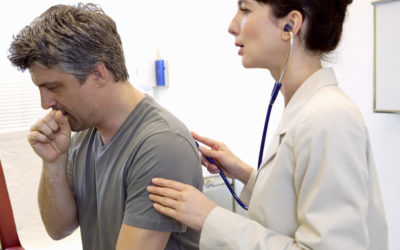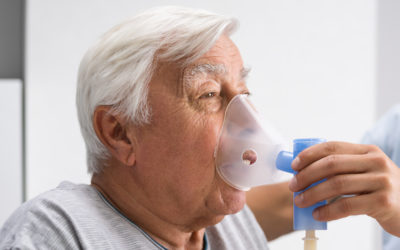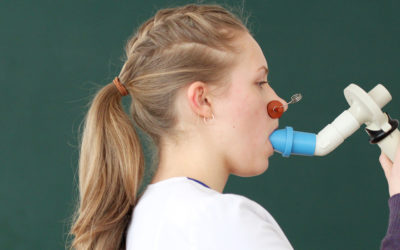Asthma
Asthma is a long-term condition that affects your breathing. It causes the airways that lead to the lungs to swell.
People with asthma may have asthma attacks. During an asthma attack, the airways tighten and become narrower. This makes it hard to breathe, and you may wheeze or cough. If you have a bad asthma attack, you may need emergency care.
Asthma affects people in different ways. Some people only have asthma attacks during allergy season, when they breather in cold air, or when they exercise. Others have many bad attacks that send them to the doctor often.
What are the symptoms of asthma?
When you have asthma, you may:
- Wheeze, making a loud or soft whistling noise when you breathe in and out.
- Cough a lot. This is the only symptom for some people.
- Feel tightness in your chest.
- Feel short of breath. You may have rapid, shallow breathing or trouble breathing.
- Have trouble sleeping because you are coughing or having a hard time breathing.
- Get tired quickly during exercise.
How can you prevent asthma attacks?
Certain things can make asthma symptoms worse. These are called triggers. When you are around a trigger, an asthma attack is more likely.
Common triggers include:
- Cigarette smoke or air pollution.
- Things you are allergic to, such as:
- Pollen, mold, or dust mites.
- Pet hair, skin, or saliva.
- Illnesses, like colds, flu, or pneumonia.
- Exercise.
- Dry, cold air.
Here are some ways to avoid a few common triggers:
- Do not smoke or allow others to smoke around you. If you need help quitting, talk to your doctor about stop-smoking programs and medicines. These can increase your chances of quitting for good.
- If there is a lot of pollution, pollen, or dust outside, stay at home and keep your windows closed. Use an air conditioner or air filter in your home. Check your local weather report or newspaper for air quality and pollen reports.
- Get the flu vaccine every year. Talk to your doctor about getting a pneumococcal shot. Wash your hands often to prevent infections.
- Avoid exercising outdoors in cold weather. If you are outdoors in cold weather, wear a scarf around your face and breathe through your nose.
How is asthma treated?
There are two parts to treating asthma:
- Control asthma over the long term.
- Treat asthma attacks when they occur.
Follow-up care is a key part of your treatment and safety. Be sure to make and go to all appointments and call your doctor if you are having problems. It is also a good idea to know your test results and keep a list of the medicines you take.
Schedule an Appointment
Call 618-282-7373
Related Services and Conditions
Pulmonary Services
Shortness of breath and wheezing can be frightening in severe cases and, even in milder cases, breathing difficulties can keep you from living your fullest life. So, when your cough from the flu or pneumonia doesn’t improve, we’re here to help. We will work with you...
COPD
Breathe Easier with Personalized Treatments Every person’s COPD – including chronic bronchitis, emphysema or both – is different. Treatment options may include one or a combination of: Lifestyle Changes Simple adjustments, including eating right and exercising...
Pulmonary Function Test (PFTs)
The experts at Red Bud Regional Hospital are here to help with pulmonary function tests (PFTs). These non-invasive exams measure how well your lungs work, so we can create a plan to help you breathe easy again. About PFTs Pulmonary function tests are a group of tests...



